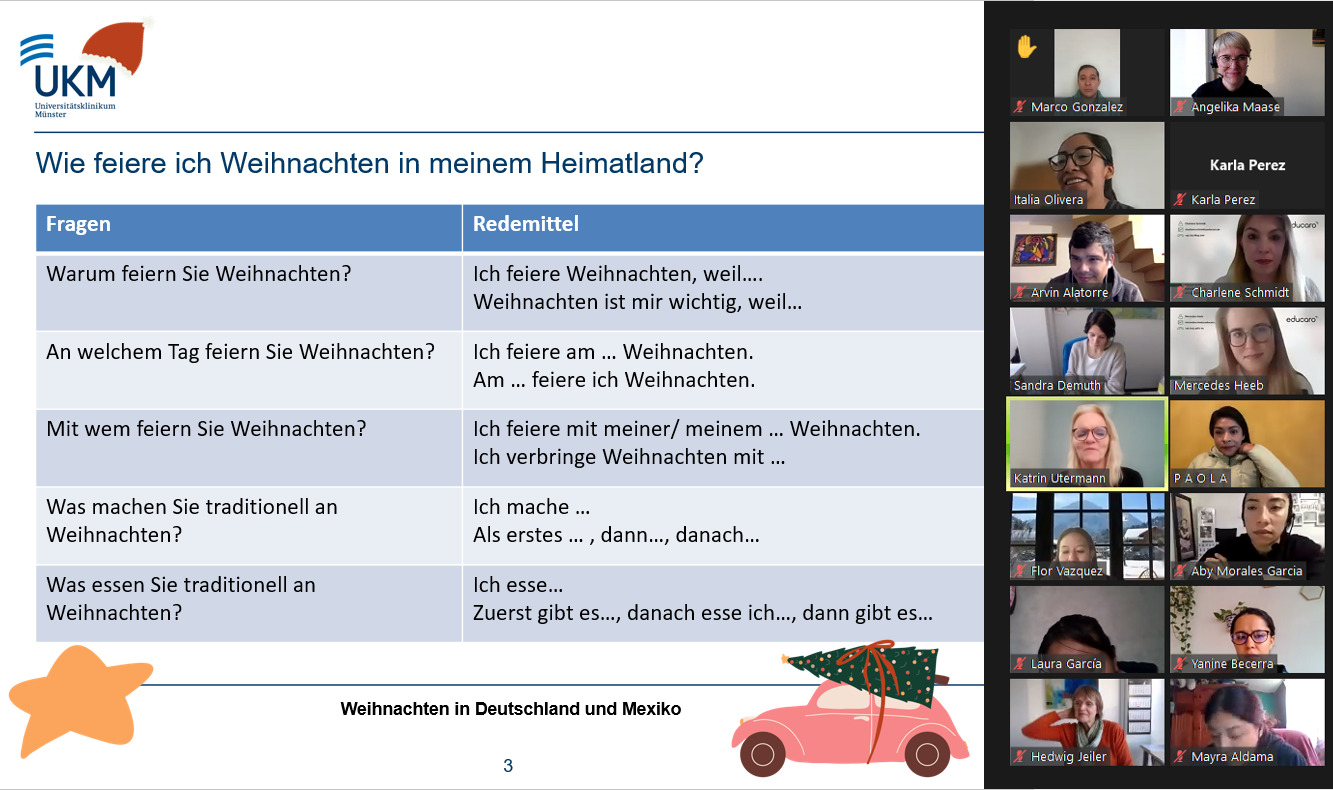Preparation & formalities
If a company has been able to recruit a nurse in a country outside the EU for a job in Germany, an intensive phase begins in which the company needs to prepare for the employee’s arrival, life and work in Germany.
Once employers and employees have found each other, a process that is often underestimated in terms of time and effort begins. In this process all the formalities that have to be completed in the country of origin, the migration into Germany and the start of work have to take place. Depending on the countries involved, various certification and approval authorities must be involved in this process. The following areas or processes need to be interlinked:
- Employment contract
The employment contract plays an important role in the procedure for the immigration of the professional as well as for the relationship between employer and employee. Employers should send the employment contract to the foreign professional in writing – in German, English and ideally also in their native language before starting work.
- Visa for Germany
Third-country nationals require a visa for entry that entitles them to take up paid employment. The visa procedure is preceded by procedures required for a residence and employment permit as well as for the recognition of the equivalence of the foreign professional qualification.
The duration of visa procedures can vary greatly in some cases and depend on the type of procedure chosen. There are predefined deadlines for the fast-track procedure for skilled workers (according to § 81a AufenthG). For the procedures outside of § 81a AufenthG, the time window for a visa application appointment varies depending on the capacity of the respective German mission abroad. Longer waiting times will be published on the websites of the embassies concerned, so that applicants and institutions can take this into account during their plans.
[Infobox Fast-track procedure for skilled workers according to § 81a AufenthG]
- Recognition procedure
You can find information on the recognition procedure at Organisation of the recognition process.
- Knowledge of German language
For the visa issuance in order to participate in a compensation measure in Germany according to § 16d AufenthG, German language skills on level B1 are often already sufficient. Further language skills can be improved in Germany.
The requirements for language proficiency for the issuance of a work permit are currently being revised. In some federal states, a B2 language exam for nursing professional purposes must be taken. In other states, general language skills at level B2 according to the Common European Framework of Reference for Languages are sufficient.
For more information, see Promotion of language development.
- Approval of the Bundesagentur für Arbeit (Federal Employment Agency)
In order to obtain a residence permit the nurse needs to have a job. The Bundesagentur für Arbeit (Federal Employment Agency) also examines the suitability of the compensation measures for the recognition of the foreign vocational qualification. In the case of public or state-accredited educational institutions as well as publicly funded or certified measures, you can assume that they will be assessed as suitable. The Ausländerbehörde (Immigration Office) and the diplomatic mission abroad adopt the examination result of the Bundesagentur für Arbeit (Federal Employment Agency).
You can find more information via this Link.
Stay in continuous contact
Experience has shown that the processes of document management, visiting the authorities and learning the language can take a long time. Only when these processes have been completed can the date of leaving/arrival actually be bindingly organised. This joint undertaking can then move to the next planning phase, for the recruiting company and the nurses. Until this point is reached, the recruiting company should find a way to keep in reliable, close and professional contact with the new employees who, at this point, are still living in their country of origin. To this end, a contact person should be appointed in the company, who can stay in touch with the future employee. If it is possible to use this time constructively, a robust trustful relationship can develop and many topics can be discussed for the time following entry into Germany, and the respective preparations can be made.
Keep in contact right up to arrival in Germany
An important trust-building task in the recruitment process of Münster University Hospital

It is important to the integration team of Münster University Hospital (UKM) to stay in touch with the international nurses in their country of origin, directly following their job interviews. As the nurses need to remain in their country of origin for a few months to learn German up to the B1 level and prepare and translate their documentation for the visa, there is a significant amount of time in which maintaining contact with the new employer in Germany is difficult.
To make sure that the new colleagues do not feel left alone on this challenging path, there are weekly video conferences with the different countries of origin.
The nurses receive information about life and above all about their working situation as nurses in Germany, and are able to ask for support directly and unbureaucratically from the integration team of the UKM. The meetings are very popular and an important building block in the process of onboarding at the UKM.
Making preparations in Germany
Companies should use the period of document management and waiting to enter Germany to adapt to the new situation. As well as the preparations after the recruitment, the Welcome Culture & Integration Toolbox covers other topics that can be prepared before the arrival.
Further information
The Goethe Institute has published two analyses on the pre-integration and mobility of skilled workers from abroad. “Understanding the mobility of skilled workers” examines the issues following the decision to migrate and the support that is needed. The analysis “Convergence that begins in the home country” examines the meaning of pre-integrative services in the countries of origin.
You can find further information as well as the analyses to download here.
At a glance: Working in Germany – Immigration opportunities for foreign labour (BDA)
You can download the PDF here. (in German)
The most important things for your to-do list
The sooner you begin to plan the entry into Germany, the more relaxed the implementation of this extensive process will be
Staying in contact before arrival and support during the initial period of work in the company are very important and should be guaranteed by a fixed contact person
An ability to individually design the place of work gives new employees the impression that they are appreciated
Everything which can be done before the employees arrive should be done before their arrival, because there are numerous appointments to be kept when they finally do arrive
It is a great help to the arriving nurses if you prepare relevant information about insurance, banks etc in a clear way, and send them to the employees before they arrive
Check if the arriving persons have health insurance already from the day they arrive; they must also register for pension insurance by the day they start work
Send the employment contract to the new nurses in German and, if desired, also in English
At the beginning of the meetings, make sure that you have the current and full addresses abroad of the new colleagues



Follow us: